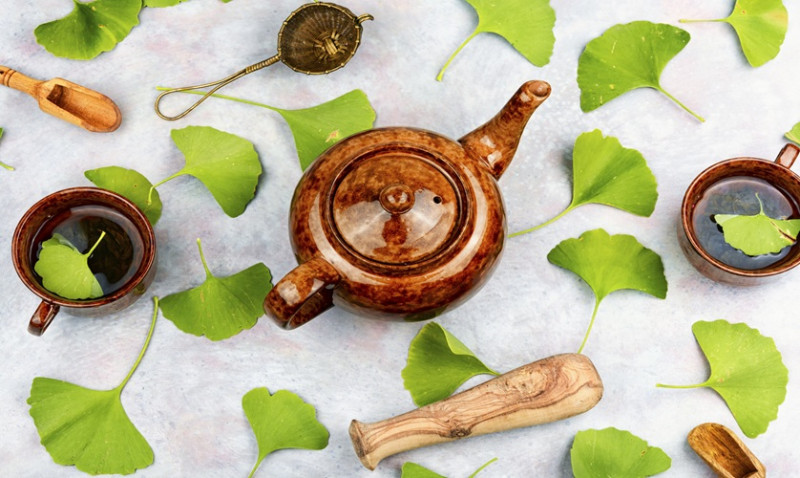
In today’s world where science, technology, and data-driven results are shaping our daily lives, it's time to place our health under the same rigorous scrutiny. If you're a DIY enthusiast, a young professional decorating your first home, or a seasoned architect or tradesperson in the UK, your health forms the backbone of your productivity, creativity, and energy. Yet, many still turn to outdated remedies like homeopathy that, despite their popularity in the past, have been repeatedly proven to bring little more than a placebo effect.
In this blog post, we’re cutting through the noise and sentimentality to focus on why continuing use of homeopathic medicine could be holding you back—not helping you heal. Whether you're on your feet managing a renovation project or drawing designs into the early hours, what you truly need is evidence-based care that supports your demanding lifestyle.
What Is Homeopathic Medicine and Why Is It Still Around?
Homeopathy is a system of alternative medicine that originated in the late 18th century. Based on the principles of "like cures like" and using extremely diluted substances to treat symptoms, it claims that a substance that causes certain symptoms in a healthy person can be used, in minuscule amounts, to treat those symptoms in someone who is ill.
Despite its roots in historical theory, homeopathy lacks credible scientific validation. Its practice has outlived much of the outdated medical theory of its time not because it works, but often because of the powerful effect of branding, tradition, and an understandable desire for natural, side-effect-free remedies.
The UK has had a long-standing relationship with homeopathy—once even endorsed by the NHS. But as more rigorous scientific standards have taken centre stage in healthcare policies, trust in homeopathy from governing bodies has begun to wane. In 2017, the NHS officially recommended against funding homeopathic treatments due to their lack of efficacy.
The Scientific Reality: Why Homeopathy Doesn't Work
Numerous studies and reviews have conclusively shown that homeopathic treatments do not outperform placebos in clinical trials. That means taking a homeopathic remedy is unlikely to provide any therapeutic benefit beyond what you'd get from believing you're being treated.
Most homeopathic solutions are diluted so intensely that not a single molecule of the original substance remains in the final product. In scientific terms, this renders the treatment chemically indistinguishable from plain water or sugar pills, depending on the form of the remedy.
The National Institute for Health and Care Excellence (NICE) and the British Medical Association (BMA) do not recommend homeopathy due to its lack of empirical support. In fact, NICE has cut funding for homeopathic treatments entirely within NHS commissioning guidelines due to a lack of benefit and a growing need to prioritise effective healthcare resource allocation.
So, while you may feel you're opting for a "gentler" or "more natural" approach by choosing homeopathy, you're actually engaging in a treatment unsupported by evidence—which could result in delays in diagnosis or real treatment.
The Hidden Risks of Choosing Homeopathy
Perhaps the most insidious issue with homeopathy is not what it contains (or doesn’t), but what it replaces. By choosing homeopathy, many delay or forgo credible, scientifically backed medical treatment. In serious or progressive health conditions, these delays can be costly, even fatal.
For example, a professional on-site dealing with physical strain every day may opt for a homeopathic remedy for muscle pain or fatigue, rather than seeking medical assessment for an underlying condition. This not only risks worsening the condition but impacts work performance, long-term health, and life quality.
Moreover, self-diagnosing and self-treating with homeopathy can lead to a false sense of reassurance. Without robust monitoring and medical guidance, symptoms can evolve unnoticed, and minor health concerns can snowball into significant issues.
Financial Impact: Are You Wasting Your Money?
In an age of rising costs and tightening personal budgets, especially relevant to professionals investing in their living spaces or tools of the trade, every penny counts. Homeopathic remedies are widely criticised for being poor value for money—essentially charging premium prices for what equates to water or sugar pills.
A study published in the British Medical Journal confirmed this by highlighting that most homeopathic products offer no demonstrable benefits beyond a placebo. With the NHS moving away from covering these treatments, any out-of-pocket costs fall directly to you, with zero medical return on your investment.
Those resources could instead be channelled into supplements with proven benefits, gym memberships, ergonomic tools to ease your physical workflow, or even rejuvenating experiences like spa therapies and massages—all of which have documented positive effects on wellbeing and performance.
Public Opinion and Global Shift Against Homeopathy
Across Europe and globally, there has been a steady decline in official recognition of homeopathy. In Germany, France, Spain, and Australia, governing bodies are calling for more transparency and evidence-based healthcare decisions, often recommending regulatory changes or outright bans on homeopathic funding.
This shift reflects a growing awareness that public funds and individual consumer spending must go toward treatments that deliver measurable health benefits. Consumers—especially educated professionals like designers, architects, and tradespeople—are increasingly turning to accurate sources of information and demanding accountability from the healthcare industry.
Choosing evidence-backed health practices isn’t just a moral high ground—it’s a personal safeguard to ensure that your time, money, and energy go into solutions that serve you.
So What Should You Use Instead?
If you're feeling under the weather, fatigued, anxious, or simply off your game, a sensible approach would begin with seeing a GP or health professional who understands integrative but evidence-based treatments. There are plenty of natural, gentle remedies that are actually supported by research—from certain herbal supplements to mindfulness activities and physiotherapy.
Modern medicine continually evolves, and there are dozens of treatment options that blend holistic care with proven science. Prioritising rest, optimising nutrition, exercising regularly, and using ergonomic practices while working are all foundational habits that deliver tangible outcomes.
For common complaints—from headaches to stress—opt for proven over-the-counter help or discuss mild prescriptions with your doctor when required. And if you’re struggling with chronic symptoms, scheduling diagnostic tests and consultations could be the breakthrough you need, rather than masking symptoms with ineffective homeopathy.
Final Thoughts: You Deserve Better
Despite the marketing, anecdotal stories, and emotional appeal of homeopathy, it simply doesn’t hold up under scrutiny. As someone designing, building, problem-solving and innovating every day, your health is too vital to place in the hands of a placebo.
Rejecting homeopathy doesn’t mean rejecting alternative health. It means choosing evidence over tradition, facts over myths, and results over rituals. Your body, your productivity, and your lifestyle deserve care that works. By making informed decisions, you ensure that your energy and time are used in ways that heal, not just hope.






